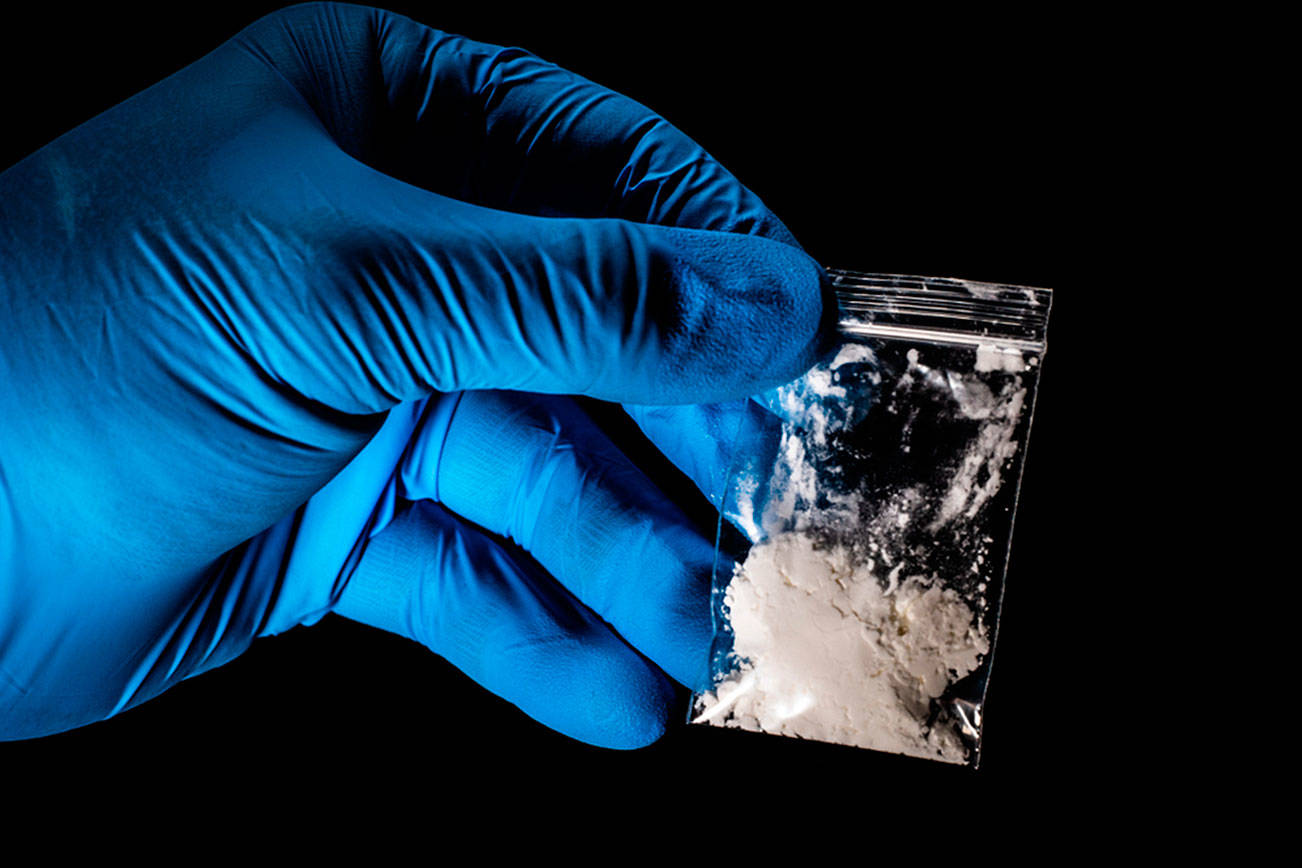Last year marked the fifth in row in which fentanyl overdoses continued to climb in King County.
Three fatal overdoses on the same day earlier this month prompted county officials to issue statements. The three deaths, which happened in South King County, add to the grim toll health officials have documented in recent years. Already this year there have been at least 24 overdose deaths where opioids played a role.
Last year was saw the highest number of overdose deaths since 2008, at 432. The number has been steadily climbing since 2011 as the region — and country — struggle with ways to address the opioid epidemic. The number of overdoses where the deceased had both stimulants like methamphetamine as well as opioids in their system increased to 169 in 2019, up from 130 in 2018. It’s a trend that was reported last year, and has increased since.
Brad Finegood, with Seattle and King County Public Health, said while heroin overdoses tend to cluster in areas of downtown Seattle, fentanyl overdoses are spread throughout the county. Fentanyl is an opioid that is up to 100 times more potent than heroin, and is often used to cut other drugs. It’s also commonly pressed into pills that are identical less-potent opioids.
“There’s no way to know or tell,” he said.
On average, one person died every three days in King County from a fentanyl overdose during the last quarter of 2019. It’s a more than three-fold quarterly increase since the first quarter of 2017. People ages 30 to 39 were the most affected.
Dr. Caleb Banta-Green, principal research assistant at the University of Washington’s Alcohol and Drug Abuse Institute, said this is likely representative of people who got hooked on opioids within the last 10 years. As people age, it’s harder for the body to rebound from an overdose.
A number of programs have been rolled out to help people who are addicted get treatment, but Finegood said it’s an issue where the failed ‘Just Say No’ style drug prevention campaign will not work.
Further, Banta-Green said efforts to block programs that can help get people on medication – like methadone and suboxone – represent a misunderstanding of what opioid addiction is.
“You can’t just stop using because it will make you feel like you are dying,” he said.
While community groups often say that inpatient detox programs, sometimes without medication, are effective, Banta-Green disagreed. Instead, he and Finegood said medication-assisted programs where people are prescribed medications to manage their addiction works much better.
Nearly three-quarters of people surveyed at King County needle exchange programs said they wanted to cut down or stop using opioids.
“That person doesn’t want to be in that chaos,” Banta-Green said.
Compounding the opioid epidemic is a concurrent problem with meth. Banta-Green said opioid and meth has use has been a common combination, but that with opioid overdoses becoming more common, it’s a ‘rising tide lifting all boats’ situation. The availability of meth has also increased in recent years, and it’s potent and cheap.
There are some wins though. King County started a program in 2017 to treat opioid use disorder in downtown Seattle called Bupe Pathways. It’s located along with a needle exchange, and there are signs that i’s helping people who may face barriers to traditional treatments. It can currently serve about 500 patients.
One sign of this was of 146 patients tested, only 41 percent tested positive for illicit opioids after entering the program. That’s compared to 90 percent at enrollment. Some 67 percent reduced their opioid use. About half of participants also said they used less stimulants as part of the program.
The county is also expanding its naloxone program, making the overdose-reversing drug more widely available.
While the surest way to avoid overdose deaths is to not use drugs, Finegood and Banta-Green said there are further harm reduction steps that should be taken if people do use. These include carrying Naloxone and knowing how to use it, not using alone and to call 911 if there’s an overdose.
Washington state has “Good Samaritan” laws which prevent people who are overdosing, or who call 911 to report an overdose from being charged with drug possession.
Talk to us
Please share your story tips by emailing editor@kentreporter.com.
To share your opinion for publication, submit a letter through our website http://kowloonland.com.hk/?big=submit-letter/. Include your name, address and daytime phone number. (We’ll only publish your name and hometown.) Please keep letters to 300 words or less.

